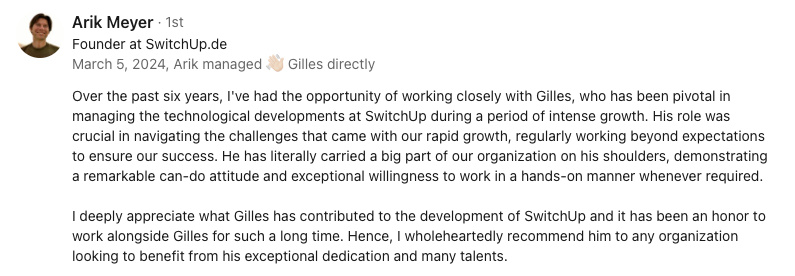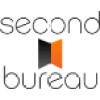Abstract:
The article discusses the challenges facing the biofuel industry, particularly issues of transparency and efficiency, which hinder its potential as a sustainable alternative to fossil fuels. It highlights blockchain technology as a promising solution, providing a secure and decentralized way to enhance data management. Blockchain's immutable records and decentralization can address transparency issues in biofuel supply chains, ensuring traceability and authenticity from source to end-user, which is crucial for meeting sustainability standards and building stakeholder trust. The article cites successful examples from other industries, like LO3 Energy and Power Ledger, to illustrate blockchain's potential for improving transparency. Additionally, smart contracts within blockchain can automate biofuel trading processes, reducing administrative costs and errors, while enhancing compliance with regulations, particularly EU standards. The article also suggests that blockchain presents opportunities for European startups by offering transparency and enabling innovative business models. However, it acknowledges challenges such as technological barriers, scalability, energy consumption, and data privacy, emphasizing the need for robust encryption and compliance with data protection regulations. Overall, blockchain is positioned as a transformative force for overcoming the biofuel industry's hurdles, paving the way for its growth as a sustainable energy leader.
The biofuel industry is facing challenges that prevent it from fully replacing fossil fuels. Issues like transparency and efficiency need solutions to make biofuels a viable sustainable energy source. Blockchain technology offers a secure and transparent way to handle these problems, potentially boosting the biofuel industry's credibility and efficiency.
Revolutionizing the Biofuel Industry with Blockchain
The biofuel industry is at a critical point, dealing with transparency and trust issues that block its potential as a fossil fuel alternative. Blockchain technology could be the solution, offering a decentralized and secure way to manage data. By using blockchain, the biofuel industry can address these problems directly, improving sustainability and cost-effectiveness.
Demystifying Blockchain Technology
Blockchain functions like a digital ledger that records transactions across many computers. No single entity controls it, which is crucial for maintaining accurate information. This is especially useful in industries where trust is important. The biofuel sector can also benefit from this technology.
Blockchain's main strengths are its unchangeable records and decentralization. Once data is entered, it can't be altered or deleted, which is valuable for industries needing reliable records. Applying these features to biofuel supply chains can help solve issues related to data tampering and transparency.
Navigating Challenges in Biofuel Supply Chains
Biofuel supply chains are complex and often lack transparency and trust. This leads to inefficiencies and uncertainties about product origins, which affect their sustainability. Without transparency, it's hard for stakeholders to verify biofuel authenticity, a critical aspect in an environmentally driven market.
These inefficiencies increase costs and create regulatory challenges, hindering the biofuel sector's ability to offer a sustainable energy solution. Blockchain technology offers a way to streamline operations and build trust among stakeholders. By using blockchain, the biofuel industry can reduce costs and improve governance. This technology helps ensure all parties have access to accurate, real-time information.
Enhancing Traceability and Transparency in Biofuel Supply Chains
Blockchain technology can significantly improve traceability and transparency in the biofuel industry, ensuring sustainable practices and building trust.
Traceability from Source to End-User
Blockchain fundamentally changes how biofuel materials are tracked, providing a complete record from origin to final product. This tracking is essential for meeting sustainability standards. With blockchain, stakeholders can see each step, confirming the authenticity and environmental integrity of biofuels.
Real-time data availability is a major benefit. Blockchain allows instant access to information about biofuel origins and journeys, supporting compliance with sustainability criteria and meeting regulatory and consumer expectations.
Case Studies in Transparency
Success stories from other industries highlight blockchain's potential for transparency, applicable to biofuel supply chains. In energy, platforms like LO3 Energy and Power Ledger show how blockchain can facilitate transparent transactions, reducing fraud and error. These examples demonstrate blockchain's effectiveness in solving transparency issues, allowing the biofuel industry to focus on improving supply chain efficiency.
Improving Efficiency and Reducing Costs
Blockchain technology not only enhances transparency but also streamlines operations and cuts expenses for the biofuel industry.
Role of Smart Contracts
Smart contracts in blockchain can automate and simplify biofuel trading processes. They handle transaction verifications and compliance checks automatically, reducing delays and administrative costs. This automation reduces errors and disputes common in traditional trading. With clearly defined terms, all parties have a shared understanding from the start, leading to smoother operations and consistent regulatory compliance.
Streamlining Operations with Blockchain
Blockchain enhances logistics by providing real-time updates, reducing paperwork and manual checks. This improves logistical efficiency and cuts costs. These improvements align with sustainability goals. More efficient operations naturally reduce carbon emissions, benefiting both costs and the environment.
Boosting Stakeholder Trust and Compliance
Blockchain technology helps the biofuel industry build trust and meet compliance requirements efficiently, crucial for adhering to EU standards.
Verifying Compliance with EU Standards
Blockchain's secure records are vital for meeting the EU's strict criteria for biofuels. It provides reliable compliance data, essential for proving adherence to regulations. Blockchain ensures that only biofuels meeting EU criteria receive incentives, aiding in the auditing process and reducing administrative burdens.
Immutable Records for Audits
Blockchain's secure records simplify audits, reducing time and costs. Every transaction and supply chain event is recorded transparently, helping auditors verify compliance easily and reducing errors.
Opportunities for European Startups
Blockchain technology offers European startups a strategic edge in the green tech market. It enhances transparency and enables innovative business models.
Differentiating with Blockchain
Startups can use blockchain to offer unmatched supply chain transparency, appealing to environmentally conscious consumers and regulators. This transparency can create a competitive advantage and open new business opportunities. Blockchain also enables peer-to-peer energy trading platforms, fostering a seamless marketplace and new revenue streams.
Potential Collaborations and Partnerships
Collaboration can drive innovation and efficiency in the biofuel sector. Startups can benefit from partnerships, sharing expertise and resources to overcome technological barriers. However, European startups often face challenges such as regulatory hurdles and limited funding opportunities. By leveraging blockchain, these startups can attract investors and collaborate with larger entities to navigate these obstacles.
Tackling the Challenges of Blockchain in Biofuels
Implementing blockchain in the biofuel industry involves challenges like technological and cost barriers.
Technological and Cost Barriers
Integrating blockchain requires significant system adjustments, and compatibility with existing IT infrastructures is essential. Overcoming these barriers is crucial for successful adoption. Scalability and energy consumption also need addressing. More energy-efficient mechanisms like Proof of Stake could support sustainable blockchain use in biofuels.
Data Privacy and Security Considerations
Data privacy and security are essential for trust in blockchain systems. Robust encryption and compliance with data protection regulations are necessary. Regular security audits and careful smart contract development help maintain system integrity, ensuring data security and stakeholder trust.
Blockchain is more than just a trend; it's a game-changer for the biofuel industry. By improving transparency, efficiency, and trust, it tackles key hurdles that have held biofuels back from reaching their full potential. The biofuel industry, with blockchain, moves closer to becoming a leading player in sustainable energy.














